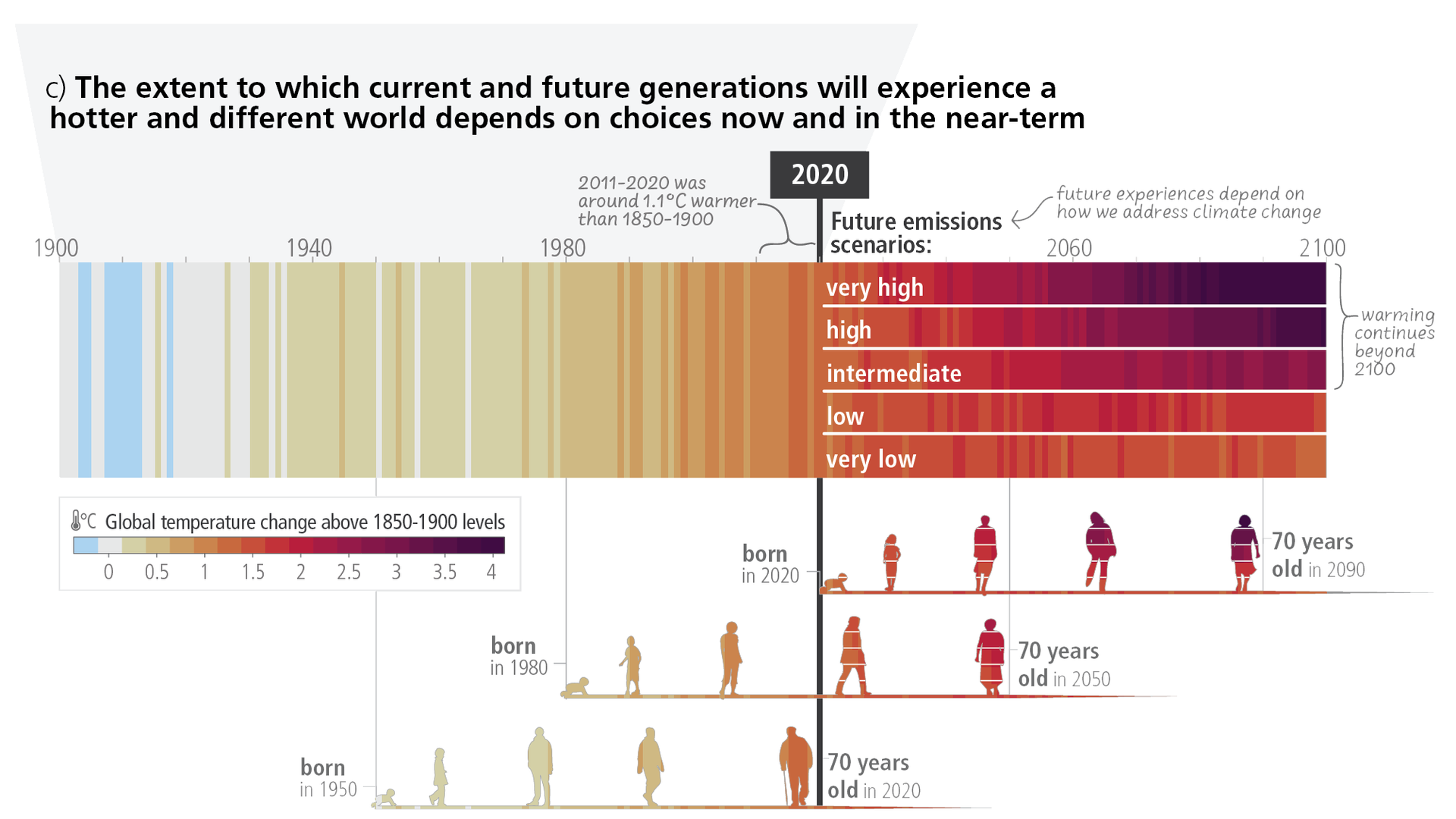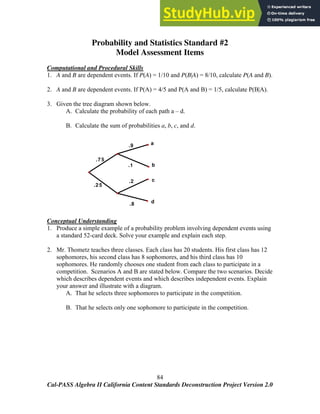Understanding dependent events is crucial in various fields like statistics, probability, and decision-making processes. In this blog post, we delve into the intricate world of dependent events and how one event can significantly influence the occurrence of another. Dependent events refer to situations where the outcome of one event affects the outcome of the second event. By exploring the relationship between these events, we gain valuable insights into predicting probabilities and making informed choices. Join us as we unravel the complexities of dependent events, uncovering the dynamics that shape their outcomes and the implications they have on our understanding of uncertainties and correlations.
Introduction: Defining Dependent Events
Understanding dependent events is crucial in various fields such as statistics, probability, and decision-making processes, as it describes the scenario where the occurrence of one event directly impacts the outcome of another event. In simpler terms, these events are interconnected in a way that the outcome of one event affects the probability of the other event happening.
Key Characteristics of Dependent Events
Dependent events exhibit specific characteristics that differentiate them from independent events. One key feature is that in dependent events, the outcome of the first event influences the probability of the second event. This dependency creates a cause-and-effect relationship between the events, making them interrelated.
Moreover, dependent events are governed by conditional probabilities, where the probability of the second event occurring is based on the knowledge of the outcome of the first event. This interdependence adds complexity to the calculation of probabilities.
Real-Life Applications of Dependent Events
Dependent events are prevalent in various real-life scenarios, such as card games, weather forecasting, and stock market analysis. For instance, in card games like poker, the probability of drawing a certain card from a deck depends on the cards already dealt, making subsequent events dependent on previous outcomes.
The analysis of dependent events in weather forecasting involves considering how weather conditions in one region can influence weather patterns in another area. This interconnectedness helps meteorologists make more accurate predictions based on the dependencies between different weather events.

The Fundamentals of Probability
Understanding the intricacies of dependent events is crucial in probability theory, especially in scenarios where one event impacting another is a critical factor. The relationship between these events plays a significant role in calculating probabilities accurately.
Dependent Events Definition
Dependent events are outcomes influenced by previous events. In probability, the occurrence of one event affects the probability of another event. This connection is essential for predicting outcomes accurately which describes dependent events.
Calculating Probabilities of Dependent Events
To determine the probability of dependent events, multiply the probability of the first event by the conditional probability of the second event given the first event has occurred. This formula ensures a precise probability estimate which can be critical in decision-making processes.
For example, if Event A and Event B are dependent, the probability of both events occurring can be calculated as P(A) * P(B|A), where P(B|A) represents the probability of B happening given A has already occurred.
Understanding Conditional Probability
Conditional probability refers to the likelihood of an event occurring given that another event has already occurred. This concept is crucial when dealing with dependent events, which describe dependent events.
Definition of Conditional Probability
Conditional probability is calculated using the formula P(A|B) = P(A ∩ B) / P(B), where P(A|B) represents the probability of event A occurring given that event B has occurred.
Application in Real-Life Scenarios
Understanding conditional probability is essential in various fields such as marketing, medicine, and finance. For example, in marketing, businesses use conditional probability to predict customer behavior based on previous interactions.
Examples of Dependent Events in Real Life
Understanding the intricacies of events that are interdependent is crucial in various real-life scenarios. These events, which describe dependent events, often showcase how one occurrence influences another, leading to a cause-effect relationship.
Financial Markets and Economic Indicators
In the world of finance, the movement of stock prices is heavily reliant on economic indicators such as GDP growth, interest rates, and inflation rates. A change in any of these factors can directly impact stock market performance.
Weather Patterns and Crop Yields
Weather patterns play a critical role in determining agricultural outcomes. For instance, the timing and amount of rainfall directly influence crop yields, showcasing the dependency between weather conditions and agricultural productivity.
Health and Lifestyle Choices
Individual health outcomes are often dependent on lifestyle choices such as diet, exercise, and sleep patterns. Making positive lifestyle changes can lead to improved health, showcasing the direct correlation between lifestyle decisions and well-being.
Factors That Influence Dependent Events
When delving into events that depend on one another, several factors come into play. Understanding these factors can shed light on the intricacies of how one event influences another.
Probability of the Initial Event
The likelihood of the first event occurring significantly impacts the subsequent event. Higher probabilities often result in a higher chance of the dependent event manifesting.
Time Interval between Events
The timing between events is crucial. A shorter time interval can lead to a stronger influence of the initial event on the dependent event, while a longer gap may weaken the connection.
External Influences
External factors such as environmental conditions, market trends, or societal changes can also play a role in how dependent events unfold. These external influences can either strengthen or weaken the connection between events.
Strategies for Analyzing Dependent Events
When it comes to analyzing dependent events, it’s crucial to understand the intricate relationship between them. By employing specific strategies, you can gain valuable insights into how one event influences another.
Probability Analysis
One key strategy is conducting a probability analysis to determine the likelihood of one event affecting the outcome of another. This involves calculating the conditional probability, which describes dependent events based on their relationship.
For instance, calculating the probability of rain given that the clouds are dark is a classic example of analyzing dependent events.
Sequential Analysis
Another effective approach is sequential analysis, where you examine the sequence of events and how they impact each other. This method allows you to identify patterns and trends that can help predict future outcomes.
- Start by identifying the initial event.
- Then analyze how subsequent events are influenced by the outcomes of the previous ones.
- This process provides valuable insights into the causal relationships between dependent events.
Case Studies on Interconnected Events
When it comes to understanding the intricacies of dependent events, analyzing case studies on interconnected events can provide valuable insights. By examining real-time data from this year, we can see how one event can significantly influence another, creating a chain reaction of outcomes.
Impact of Social Media Trends
One compelling case study revolves around the impact of social media trends on consumer behavior. In 2022, a viral post can lead to a surge in product sales, showcasing the interconnected nature of online platforms and purchasing decisions.
Environmental Changes and Economic Shifts
Another critical study focuses on how environmental changes can trigger economic shifts. With the increasing emphasis on sustainability in 2022, businesses that adopt eco-friendly practices may experience growth while those lagging behind could face challenges.
- Study the interconnectedness between environmental and economic factors
- Explore strategies for businesses to adapt to changing trends
- Understand the implications of environmental policies on market dynamics
Frequently Asked Questions
-
- What are dependent events?
- Dependent events refer to events where the outcome of one event influences the outcome of another event.
-
- Can you provide an example of dependent events?
- An example of dependent events is drawing two cards from a deck without replacement, where the probability of drawing the second card is influenced by the outcome of drawing the first card.
-
- How do dependent events differ from independent events?
- Dependent events differ from independent events in that the outcome of independent events does not affect each other, whereas in dependent events, the outcome of one event affects the outcome of the other.
-
- Why is it important to understand dependent events?
- Understanding dependent events is important in various fields such as mathematics, statistics, and risk analysis as it helps in predicting outcomes and making informed decisions based on the relationship between events.
-
- What are some real-life examples of dependent events?
- Real-life examples of dependent events include weather forecasting, stock market predictions, and medical diagnosis where one event or factor influences the outcome of another.
Unlocking the Interconnected Nature of Dependent Events
As we conclude our exploration into dependent events, it becomes clear that understanding the intricacies of how one event influences another is essential in various fields, from statistics to daily decision-making. By grasping the concept of dependent events, we gain insight into the interconnected nature of our actions and their outcomes. Recognizing the probabilities and relationships between events allows us to make more informed choices and predictions. Remember, in a world where events are seldom isolated, the ripple effects of one decision can lead to unforeseen consequences. So, dive deep into the realm of dependent events, for therein lies the key to unraveling the mysteries of cause and effect.

